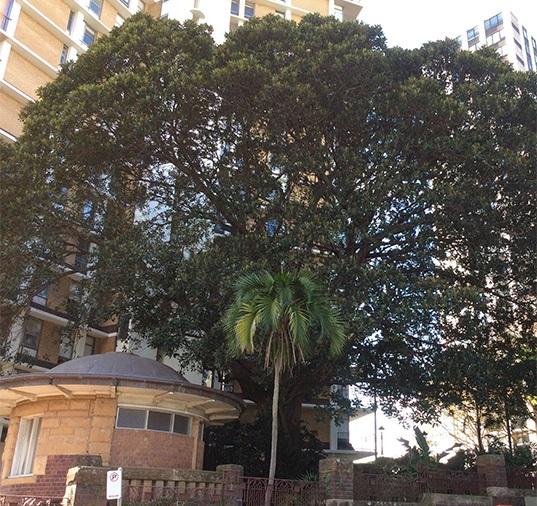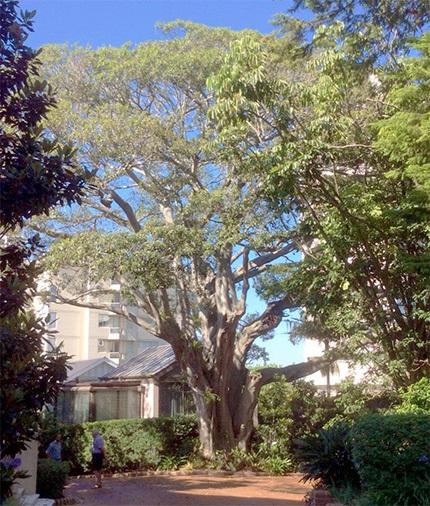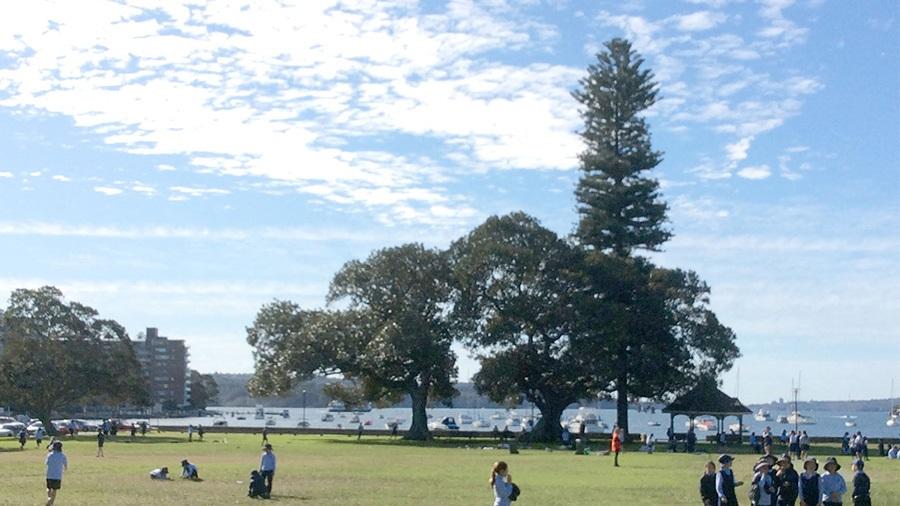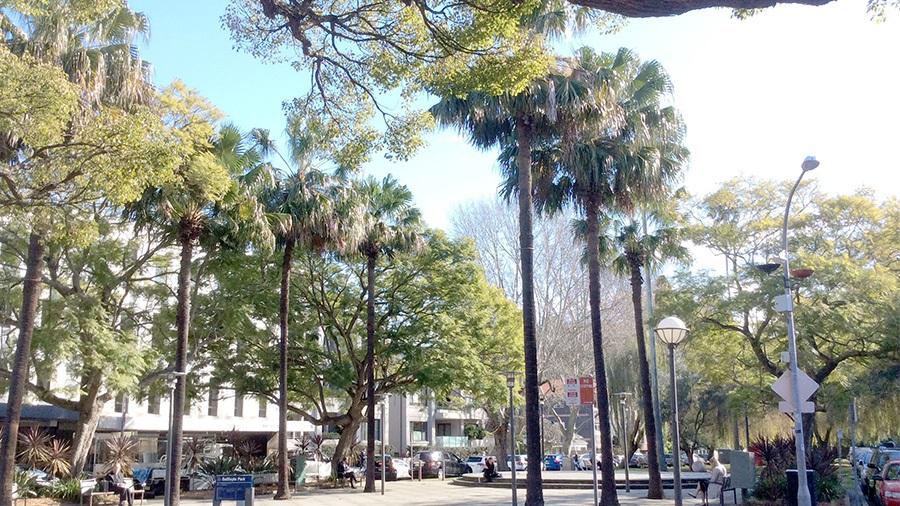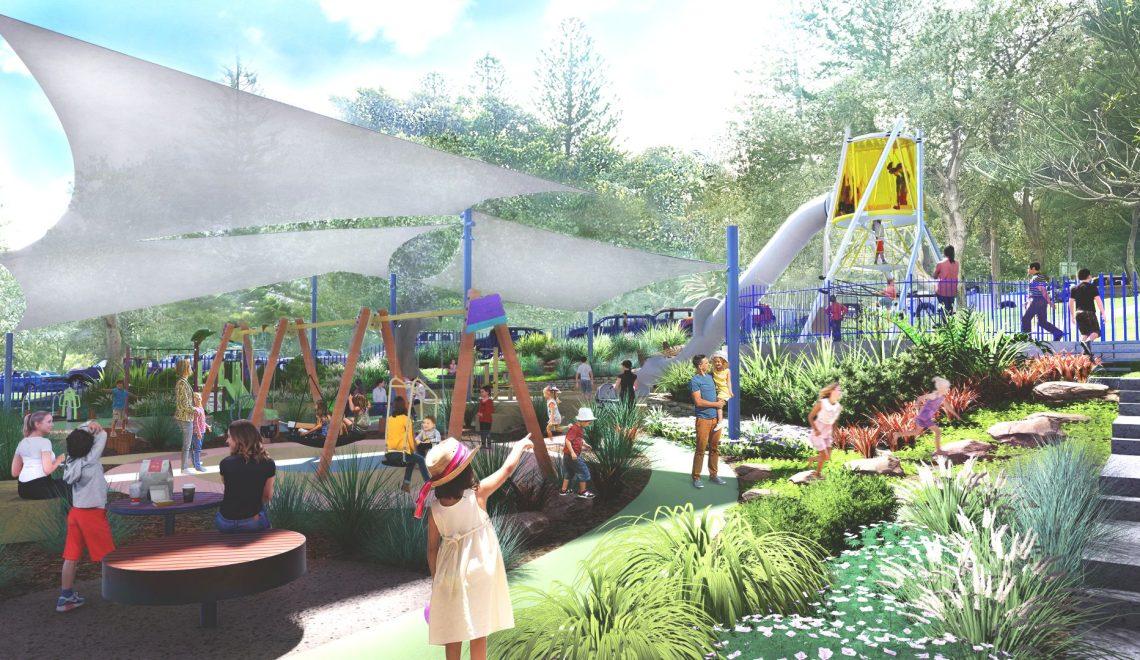
Woollahra is home to some of Sydney’s most wonderful trees. The area’s rich heritage of private and publicly owned trees provide much of the beauty, character and history that makes the Woollahra local area such a desirable place to live.
Some of the oldest and most unique trees are listed in the Woollahra councils Significant Tree Register (STR), to help them manage and protect them for future generations.
Here are five stunning trees throughout the Woollahra council local area that are recorded on the Significant Tree Register.
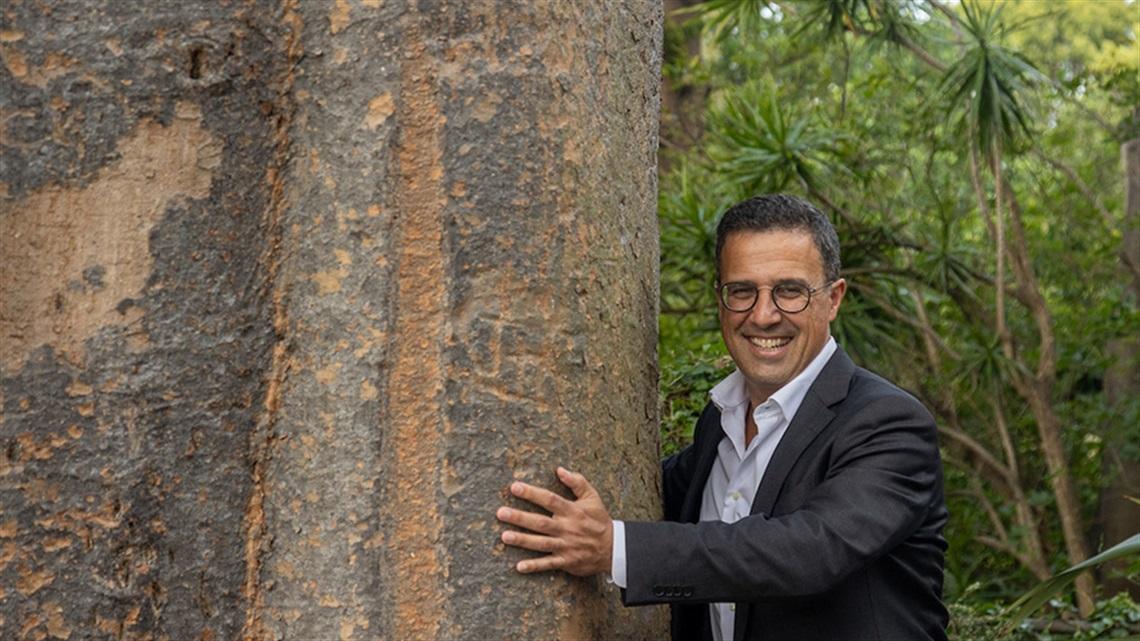
Paddington Street (between Elizabeth Street and Jersey Road), Paddington
Paddington Street is an outstanding example of Avenue planting of visual and cultural significance in the Paddington area. This mixed avenue planting of 31 London Plane Trees, 17 Hills Weeping Figs and 3 Red Apples is recognised on our Significant Tree Register.
In spite of overhead cables on one side of the street, and the trees proximity to the road and footpath, the trees’ branches are able to interconnect, forming a more or less continuous canopy over the footpath, street and the front gardens of neighbouring terraces. The mixed evergreen and deciduous canopy creates a memorable and distinctive street character that changes with the seasons from a dense green tunnel in summer to a mix of open tracery and foliage in winter.
Hopewood Gardens, Darling Point
This magnificent Moreton Bay Fig on the grounds of an apartment complex is 23 metres tall with a 25 metres canopy. It towers over the historic gate house (pictured above) and is potentially more than 150 years old. It’s listed on our Significant Tree Register as it makes a substantial contribution to the streetscape and local skyline and helps balance the scale of the apartment building.
Babworth House, Darling Point
This 20 metre tall Small-leaved Fig near the entry and original gatehouse to Babworth House is possibly one of the most significant trees on the Darling Point peninsula and is one of only a few known specimens of this species in the Municipality.
Although the Fig has a limited visual impact now with all the high-rise development in Darling Point, it still remains an outstanding botanic specimen, with its unusual intertwined and entangled form arising from a five-stemmed massive base. This highly sculptured form together with the branching pattern and dense canopy over the driveway marks this locally rare specimen as a very important and significant tree.
Steyne Park, Double Bay
Steyne Park contains 12 Significant Trees, including eight Moreton Bay Figs (15m tall, 30m canopy spread), three Port Jackson Figs (14m tall, 12m canopy spread) and 1 Norfolk Island Pine (26m tall, 9 metre canopy spread).
These trees frame the perimeter of the park and the stunning harbour view. They provide visual continuity with the other historic plantings of the area, particularly along Ocean Avenue and Guilfoyle Avenue. With such large canopies, they also provided much needed shade, which is especially appreciated by the Double Bay Public School students who use the park.
Guilfoyle Park
Guilfoyle Park is named after the Guilfoyle family who operated the Exotic Nursery in this area from 1851-1874. Guilfoyle’s Exotic Nursery became widely known for importing and propagation of many exotic and rare species.
Guilfoyle Park contains five Washington Palms (22-24m tall and 8 metre canopy spread) which are listed on our Significant Trees register. Their origins are possibly associated with the Guilfoyle family nursery as Washington Palms were part of the exotic and cultural plantings established in the area through the nursery.
Jacaranda trees also line Guilfoyle Avenue, another tribute to Michael Guilfoyle who is credited with introducing the species into Australia.
Read more information about our Significant Trees project and nominate your favourite tree over at Your Say Woollahra.
Nominate your favourite trees
The Woollahra council is updating its Significant Tree Register and wants to know which trees in the local area should be added to acknowledge their heritage value and protect them into the future.
We’re looking for trees that have at least one of the following:
- Aesthetic or outstanding visual significance
- Historical significance
- Social significance
- Scientific, ecological or botanic significance.
Learn more and nominate a tree by 18 February 2024 at Your Say Woollahra.
This project is proudly supported by the NSW Government in conjunction with Woollahra Council.
Where to plant a tree on National Tree Day in the Eastern Suburbs of Sydney

